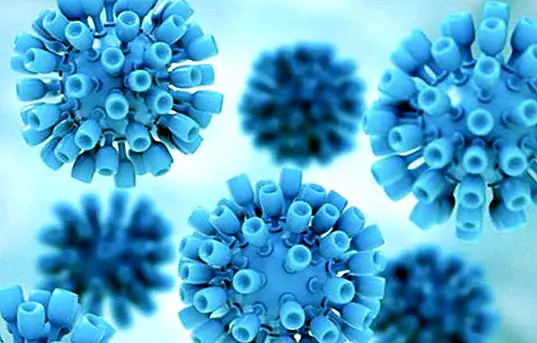The nutritional qualities of peanut butter and its benefits
There is no doubt that by naming the peanut butter, also popularly known simply as peanut butter, the first thing that comes to mind is that it is a popular food arrived directly from the United States, where in fact it is so common that movies and television series abound where its protagonists consume it.
In fact, it is very common to consume it in a sandwich accompanied by jam, which also becomes a tremendously delicious dish because the salty flavor of peanut butter combines almost perfectly with the sweetness of fruit jam.

There it is so, so popular that it has become an authentic hallmark of identity, to the point of being known simply by the name of PB & J (Or what is the same, Peanutbutter and jelly sandwich).
But the origin of this popular cream is found in the late nineteenth century, when John Harvey Kellogg patented a method to make a nutritious paste with which to feed the patients of The Battle Creek Sanitarium center.
It turned out to be so delicious that it soon became popular, although it was not until 1901 when a magazine (named The Boston Cooking School Magazine) suggested for the first time combine it with marmalade. Since then, it has become an authentic culinary institution.
Be that as it may, it is quite common to relate peanut butter with junk food, especially since it originates from the country where it comes from, and especially because it is considered an unhealthy food.
But did you know that in reality It stands out for being a tremendously nutritious food, full of benefits and healthy properties? As long as, of course, it is made at home with natural ingredients, or we know which one to buy at the supermarket.
The nutritional properties of peanut butter
It is evident that the main ingredient of this cream or butter is the peanut (also popularly known simply as peanut or manis). For that reason it is in fact considered a very nutritious and healthy cream, provided that -clearly- it has been elaborated only with that: peanuts.

From a nutritional point of view, Peanut butter is tremendously rich in good quality protein, in addition to healthy fats, especially monounsaturated fats.
It also provides an interesting amount of carbohydrates, although in truth its protein contribution is much greater.

In terms of its vitamin and mineral content, did you know that is one of the foods that provides the most vitamins and minerals? In fact, we find in its composition minerals such as phosphorus, potassium, magnesium, calcium, iron, zinc and iodine. While, among its vitamins, we can mention above all vitamins of group B (B1, B2, B5, B9 or folic acid and B12), in addition to vitamin A, C, D and K.
Regarding its caloric content, 100 grams of peanut butter provide around 620 kcal, in part because of its high content of healthy fats (50 grams). On the other hand, it also provides 10 grams of carbohydrates, 30 grams of protein (of good quality), and does not contain cholesterol.
The most important benefits of peanut butter
A very nutritious food
As we indicated in the previous section, the peanut cream stands out for its high nutritive contribution, among which we find good quality proteins, carbohydrates and healthy fats.
But this is not all, as it also contains an interesting amount of vitamins and minerals, as well as fiber.
Rich in healthy fats
Peanut butter is mostly rich in healthy fats, among which the monounsaturated fats, which help decrease the risk of developing cardiovascular diseases, especially heart diseases.

In addition, for its vitamin E content it is a food with antioxidant benefits, which is associated with a lower risk of developing heart disease.
This means that peanut butter helps decrease high cholesterol levels, especially LDL cholesterol. Plus, it does not contain or contribute cholesterol.
Ideal for athletes
If you are an athlete, or practice regular and regular physical exercise, it is quite likely that you will find a wonderful ally in peanut butter. Why? Very easy: thanks to its high caloric content, it provides energy, which translates into better physical performance.
Therefore it also becomes a delicious and nutritious food for students, because it helps to provide energy.
In addition, its good protein content promotes muscle gain, ideal for those who practice exercises to promote and gain muscle mass. This article is published for informational purposes only.You can not and should not replace the consultation with a Nutritionist. We advise you to consult your trusted Nutritionist.


